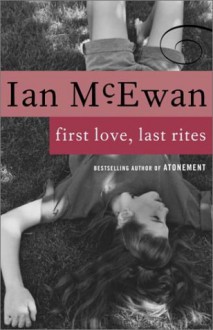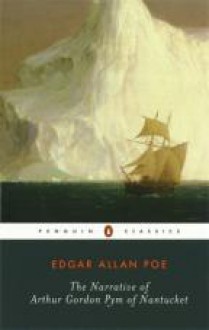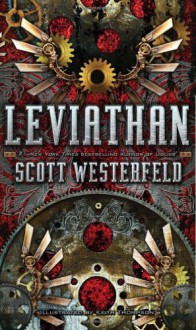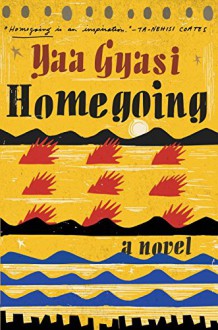I never got around to doing this at the end of February, so what the heck ... I might as well include the first two weeks of March, since that month is half over at this point already, too. But then, February was such a universal suck-fest in RL that I didn't even make it here for the better part of the month to begin with. (Don't even ask.) So much for my hope back in January that things might be looking up ...
So, lots and lots of comfort reading in the past 1 1/2 months; Golden and Silver Age mysteries aplenty, both new and from the reread department -- but I also managed to honor Black History Month and advance my Around the World, Women Writers, and 221B Baker Street and Beyond reading projects. In perhaps the weirdest turnout of the past couple of weeks, I even managed to include two "almost buddy reads" (reading books that others had recently finished or were reading concurrently -- Patricia Moyes's Dead Men Don't Ski and Freeman Will Crofts's The Cask) and, before vanishing into my February RL black hole, a real buddy read with BT of John Bercow's excellent (though somewhat unfortunately-titled) memoir, Unspeakable.
Number of books read since February 1: 27.
Of these:
Black History Month
Chimamanda Ngozi Adichie: We Should All Be Feminists
Yaa Gyasi: Homegoing
Gaël Faye: Petit pays (Small Country)
Around the World
-- counting only books by non-Caucasian authors and / or set neither in Europe nor in the mainland U.S.:
The three above-mentioned books, plus
Sonia Sotomayor: My Beloved World
Mia Alvar: In the Country
Matthew Pritchard (ed.), Agatha Christie: The Grand Tour: Letters and Photographs from the British Empire Expedition 1922
221B Baker Street and Beyond
Terry Manners: The Man Who Became Sherlock Holmes
Keith Frankel: Granada's Greatest Detective
Golden Age Mysteries
4 by Ngaio Marsh (all rereads): Overture to Death, Light Thickens, Dead Water, Death at the Bar
4 by Margery Allingham (2 rereads, 2 new): The Beckoning Lady, Death of a Ghost, Mystery Mile, Black Plumes
1 by Patricia Wentworth (new): The Case of William Smith
2 by J. Jefferson Farjeon (both new): Seven Dead and Thirteen Guests
1 by Raymond Postgate (new): Somebody at the Door
1 by Freeman Wills Crofts (new): The Cask
Silver Age and Other Mysteries
Patricia Moyes: Dead Men Don't Ski (new)
Colin Dexter: Last Bus to Woodstock (reread)
Ellis Peters: The Sanctuary Sparrow (reread)
P.D. James / BBC Radio: 7 dramatizations (Cover Her Face, Devices and Desires, A Certain Justice, A Taste for Death, The Private Patient, The Skull Beneath the Skin, and An Unsuitable Job for a Woman) -- all revisits as far as the actual books were concerned, as was the dramatization of The Skull Beneath the Skin; the rest of the audios were new to me)
Other Books
John Bercow: Unspeakable (memoir)
Tony Riches: Henry (historical fiction)
Of all of these, the standout entries were:
Gaël Faye: Petit pays (Small Country)
A short but impactful novel tracing the coming-of-age of the son of a French father and a Burundian Tutsi mother, which coming-of-age is rudely interrupted when the genocide in neighboring Rwanda spills over into Burundi. What starts out as an endearing but somewhat unremarkable read becomes a tale of unspeakable heartbreak in the final part, in which it only took very few pages for the book to completely skewer me.
Sonia Sotomayor: My Beloved World
Justice Sotomayor's memoirs of her upbringing in the New York Puerto Rican community, and her unlikely, but doggedly pursued path to Princeton, Yale Law School, and ultimately, the Federal Bench -- fullfilling a dream that had, oddly, started by watching Perry Mason on TV as a child. I wish Sotomayor hadn't finisihed her book with her appointment as a judge, though I respect the reasons why she decided to do so; and even so, hers is a truly impressive, inspiring story of overcoming a multitude of crippling conditions (type-1 diabetes, poverty, racism, and teachers discouraging rather than inspiring her, to name but a few) to chart out a path in life that even most of those who didin't have to overcome any of these odds would not dare to aspire to. Throughout the narrative, Sotomayor's genuine empathy with and care for her fellow human beings shines through on many an occasion; not only for her family and friends, and for those disadvantaged by society, but for everybody she encounters -- until and unless they rub her the wrong way, in whch case they will find themselves at the receiving end of a tongue lashing or two. What particularly impressed me was that Sotomayor, though a staunch defender of Affirmative Action, repeatedly chose not to seek positions as a minority candidate but on a more neutral ticket, fearing she might unduly be buttonholed otherwise. That sort of thing takes great strength and belief in the universality of her message.
Matthew Pritchard / Agatha Christie: The Grand Tour: Letters and Photographs from the British Empire Expedition 1922
Agatha Christie's letters, photos and postcards from the expedition to South Africa, Australia, New Zealand, Hawaii, and Canada in which her first husband, Archibald, and she were invited to participate out of the blue shortly after the birth of their daughter Rosamund. Lovingly edited by her grandson Matthew Pritchard, and amplified by the corresponding excerpts from her autobiography, the letters in particular shed an interesting sidelight onto the thinking and life experience of the then-budding future Queen of Crime (her second novel was published while the tour was under way), and to fans, the book is worth the purchase for her photos alone (she had rather a good eye for visual composition, too) ... and for her surfing adventures, reproduced here in their full glory, and in both words and images.
John Bercow: Unspeakable
An impromptu boddy read with BrokenTune; delivered in Bercow's trademark style and doubtlessly offering as much fodder to those determined to hate him as to those who regret his stepping down as Speaker. I commented on the bits up to the Brexit chapter in a status update at the 70% point; the final part of the book contains much that Bercow had already said repeatedly while still in office, be it in interviews or from the Speaker's chair; yet, while he doesn't hold back with criticism of those whose stance he considers irresponsible, he is also scrupulously fair to all those who, he genuinely believes, are working hard to realize the political aims they consider in the best interests of theiri constituents. In fact, the chapter about what, in Bercow's opinion, makes a "good" politician, was possibly the most surprising inclusion in the book (and the book worth a read for that chapter alone), heaping praise (and in some instances, scorn) on a wide array of politicians of all parties, regardless whether Bercow shares their views or not. -- Even if no longer from inside the Houses of Parliament, I hope and trust Bercow's voice will remain relevant and weighty in the months and years to come.
Patricia Moyes: Dead Men Don't Ski
A huge shout-out to Moonlight Reader for favorably reviewing this book earlier this year and thus bringing it to my attention. Henry Tibbett and his wife Emmy are a joy to be with, and like MR and Tigus (who has also read the book in the interim), I'll definitely be spending more time in their company in the future. What I particularly appreciated in addition to the delightful characters created by Ms. Moyes (and the rather cleverly-constructed locked-room mystery at the heart of this book) was the understanding she brought to the book's setting in the German-speaking part of the Italian Alps, which is not only one of the most naturally stunning parts of the entire Alps but also a region fraught with a complicated history, which might have caused a lesser writer to glide off into easy cliché, but which Moyes uses rather skillfully in crafting her story's background.
Ngaio Marsh: Light Thickens
The final book of the Roderick Alleyn series and perhaps not everybody's cup of tea, set, as it is, in Marsh's "main" professional domain -- the world of the theatre -- and featuring a plot in which the murder only occurs at the halfway point, almost as an afterthought: and yet, upon revisiting the book, I instantly realized all over again why this (the first mystery by Marsh I'd ever read) was the one book that irresistibly drew me into the series and made me an instant fan. This isn't so much a mystery as a Shakespearean stage director's love letter to the Bard, and to his "Scottish play" in all of its permutations; as well as to the Shakespearean theatre, and more generally, the world of the stage as such. Roderick Alleyn (rather far advanced in his career and definitely not having aged in real time) eventually shows up to solve the inevitable murder, faithful sidekick Inspector ("Br'er") Fox in tow and quoting Shakespeare with the best of them, but the stars of the show remain the actors themselves, the play's director (whom those who read the series in order will, at this point, already have encountered in a prior installment), and ultimately, Shakespeare himself. This may not be everybody's cup of tea in a mystery ... to me, it proved irresistible, the first time around as much as upon revisiting the book now.
Margery Allingham: Death of a Ghost
Unlike my reading experience with Allingham's fellow Golden Age Queens of Crime Dorothy L. Sayers, Agatha Christie and Ngaio Marsh, that with Margery Allingham's Albert Campion series is a rather checkered one, where instances of true mystery reader's delight repeatedly follow hot on the heels of groan-inducing forays into clichéd, implausible plots populated by cardboard characters, and vice versa. That said, even upon my first read I considered Death of a Ghost one of the series's absolutely standout entries, and that impression has only been confirmed and reinforced by revisiting the book. Set in the art world and populated by a cast of fully drawn, quirky characters (some likeable, some decidedly less so), the book lives off Allingham's acerbic wit, which is brought out to great advantage here; and although Campion tumbles to the probable identity of the murderer when we're barely halfway into the book, Allingham easily maintains the reader's interest by keeping the "how" a puzzle, and by tying in a further puzzle whose solution will eventually provide the motive for the murder. If there is any letdown in the book at all, it's in the murderer's ultimate fate, but by and large, this is a superlative effort.
As a side note, I've also concluded that the audio versions of Allingham's novels work decidedly better for me if read by Francis Matthews rather than David Thorpe. I have no problem with Thorpe as a narrator of other books, but he takes a rather literal approach to Allingham's description of Campion's voice, making it come across almost as a falsetto, which in combination with his overly expressive narration as a whole tends to drive me clean up the wall. Matthews's delivery, by contrast, while hinting at Campion's vocal patterns, is a bit more matter of fact overall (even though it still leaves plenty of room for characterization, both of people and of plot elements) -- an impression that was swiftly confirmed when a search for further Allingham titles recorded by Matthews threw up a non-Campion mystery of hers, Black Plumes, which in turn also confirmed my impression that some of Allingham's best writing is contained in books other than her Campion mysteries.
Overall, the past six (or so) weeks contained a lot of great books, regardless whether rereads or new to me. The two most-hyped entries in the selection -- Yaa Gyasi's Homegoing and Mia Alvar's In the Country -- proved, almost predictably (for me, anyway), those that I was least impressed with: they were both still solid 4-star reads, but both episodic in nature, with only some of those episodes engaging me as fully (and consequently, blowing me away as much) as, if I'd have believed the hype, I'd have expected the entire books to do. (I know, I know. 4 stars is still a very respectable showing, and I wouldn't give either book less than that ... and considering that I've been known to one-star overly hyped books when called for, 4 stars is even more pretty darned decent. Still ... they both, but particularly so Homegoing, would have had so much more potential if they'd been allowed to spread their wings to the full.) -- Of the Golden Age mysteries new to me, the standout was J. Jefferson Farjeon's Thirteen Guests. Tony Riches's Henry provides a well-executed conclusion to his series about the three first significant Tudors (Owen, Jasper, and Henry VII) -- neatly complementing Samantha Wilcoxson's novel about Henry VII's wife Elizabeth of York, Plantagenet Princess, Tudor Queen -- and the two books focusing on Jeremy Brett and the Granada TV Sherlock Holmes series starring him as Holmes have given me the idea for a Holmes-related special project, which I will, however, probably only get around to later this year (if I get around to it at all, my RL outlook being what it is at the moment).

 Log in with Facebook
Log in with Facebook 























